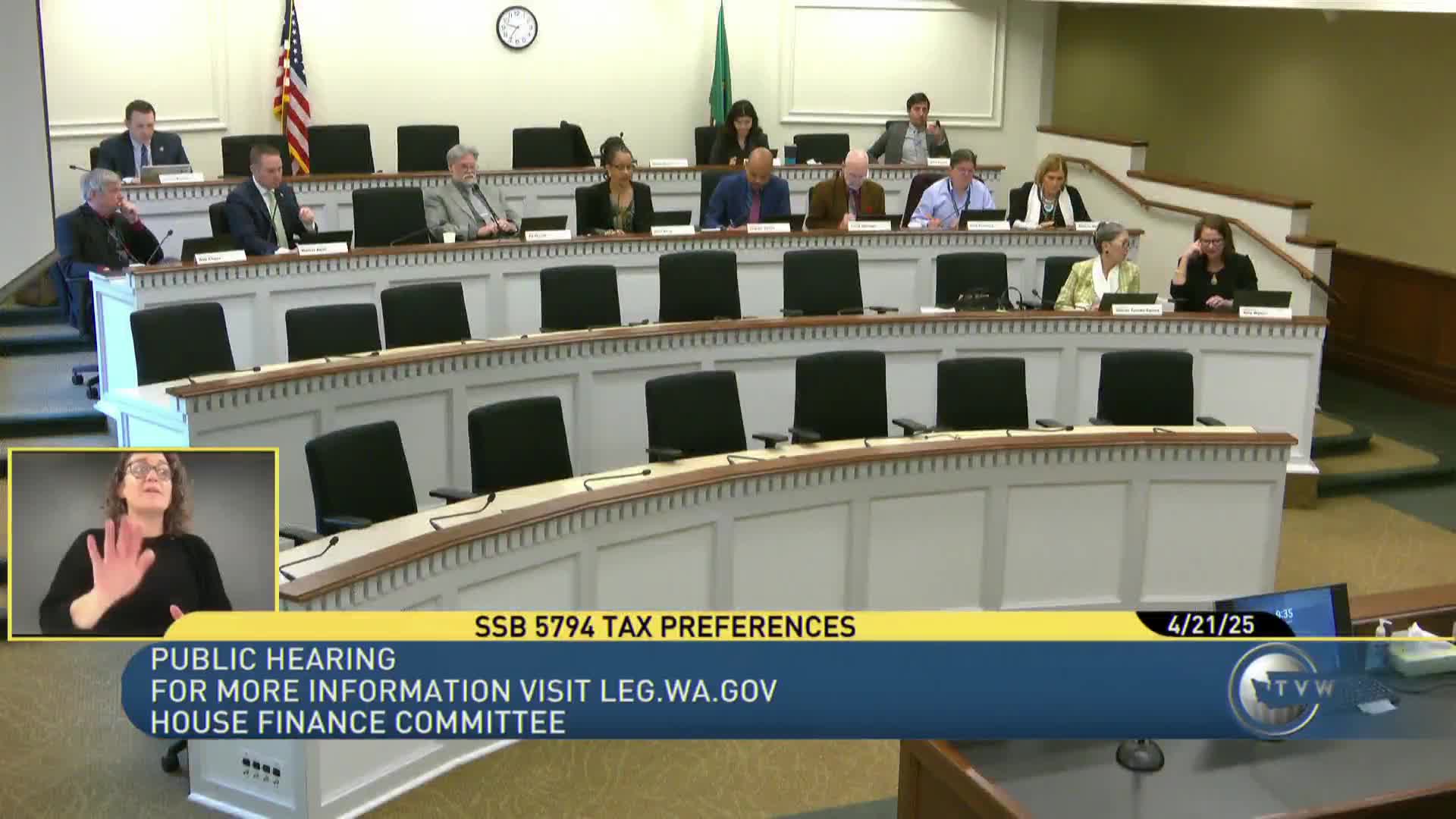Hearing on bill to repeal or sunset multiple tax preferences draws varied industry opposition and labor support
Get AI-powered insights, summaries, and transcripts
Subscribe
Summary
A public hearing April 21 on Senate Bill 57 94 considered repealing or sunsetting numerous tax preferences, drawing both labor and industry testimony on specific carve‑outs.
A committee public hearing April 21 reviewed Senate Bill 57 94, which would repeal or sunset a wide range of tax preferences across industries, including several B&O tax deductions and preferential rates, exemptions for precious metals and bullion, the home energy assistance public utility credit, certain insurance prepayment exemptions, and a change to taxation of self‑storage rentals.
Christina King, committee staff, reviewed the list of preferences proposed for repeal or sunset. King described affected preferences including the B&O deduction for interest on certain real estate loans, a preferential rate for international investment management services, exemptions for precious metals and bullion, the home energy assistance public utility credit, and the proposed reclassification of self‑storage rental income out of the rental of real estate exemption beginning April 1, 2026.
Labor and service‑sector witnesses urged the committee not to allow further cuts to long‑term care and other social services and supported closing tax loopholes to preserve funding. Claire Reis, a certified nursing assistant and SEIU 775 member, said chronic short staffing and potential cuts to long‑term care funding would be disastrous for resident care and urged lawmakers to “ask corporations to pay their share.” Members of progressive and poverty‑action coalitions and health professionals argued that closing exemptions is necessary to maintain childcare, public health and education services.
Industry groups objected to specific repeals. The Washington State Self Storage Association, represented by Lance Baker and Patrick Gilroy, said the change to self‑storage taxation would disproportionately affect mom‑and‑pop operators—more than half of Washington’s storage facilities are single‑store operators, the witnesses said—and would make storage less affordable for lower‑income households. The Washington Coin and Bullion Association and several family coin dealers opposed repealing the precious‑metals exemption, arguing earlier decisions and parity with other investments support the exemption and that adding a sales tax would push buyers out of state.
Health‑sector speakers asked the committee to preserve targeted preferences that support service delivery. Sean Pickard of Delta Dental asked lawmakers not to eliminate a tax preference for dental services, saying repeal would increase the cost of dental coverage and make it harder to run state programs such as school‑based oral health initiatives. The Healthcare Distribution Alliance asked the committee to preserve the B&O preference for warehousing and reselling prescription drugs, warning repeal would increase patient costs and make in‑state pharmacy operations more difficult.
Other industries urged specific fixes: Russell Investments asked removal of a large rate increase being applied to international investment management services; AAA Washington opposed changing the tax treatment of insurance producers and urged support for the local agent model; and the Washington Public Utility District Association asked that the public utility tax credit for low‑income customers not be repealed because it funds low‑income rate assistance.
The committee closed public testimony and gave administrative deadlines for amendment requests and posting. No votes were taken at the hearing.
Ending: The hearing closed with the committee setting amendment request and posting deadlines; staff noted fiscal notes had been requested where applicable.
